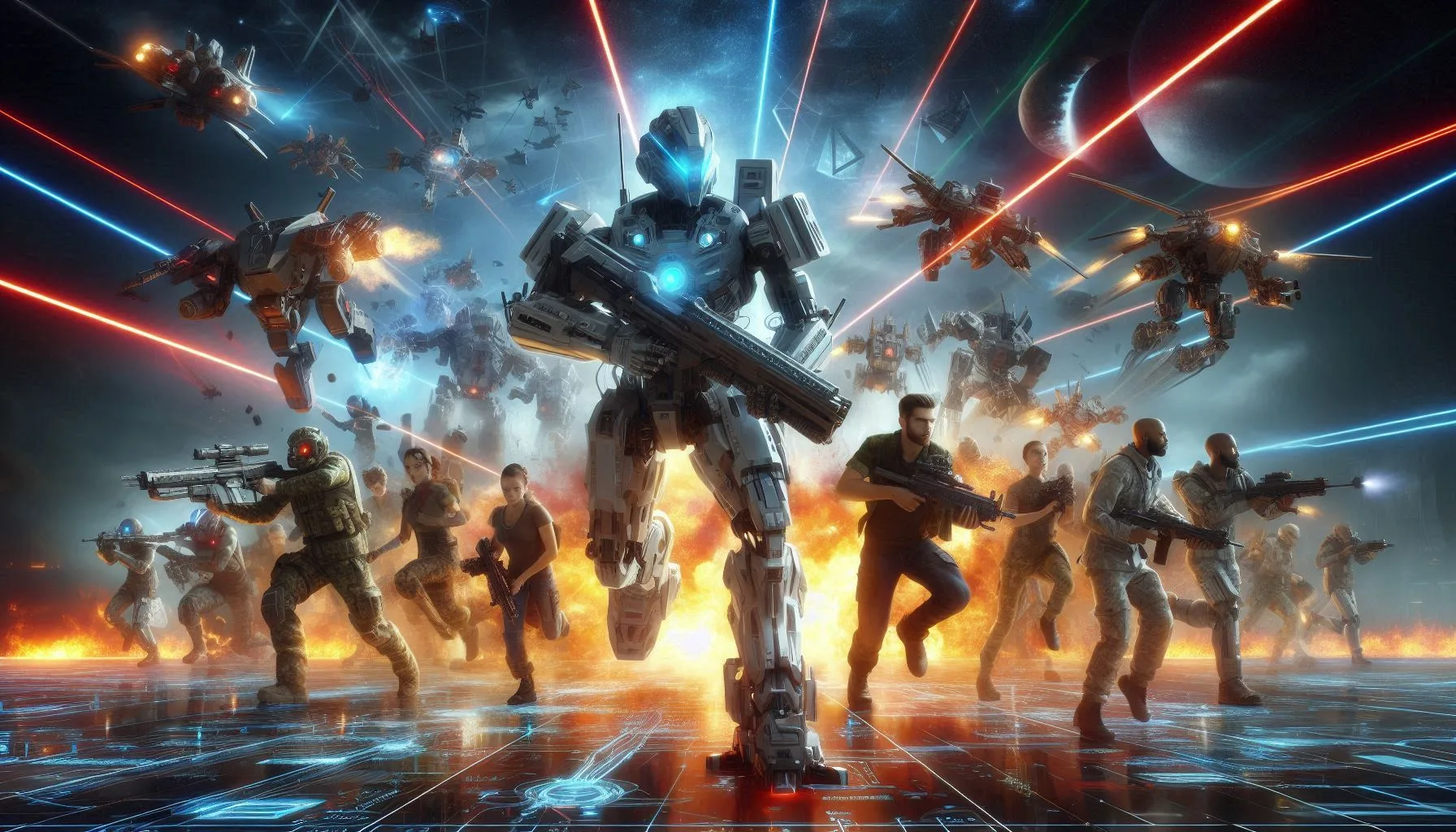Disclaimer: This article does not endorse or promote harmful, hateful, or unethical applications of AI in warfare. Instead, it focuses on the technological aspects, highlighting the importance of safe and responsible use of artificial intelligence in maintaining peace and security.
Introduction
As artificial intelligence (AI) continues to evolve, one of the most pressing questions is whether it will play a significant role in future conflicts. While AI has already become a critical tool in various industries, including healthcare, transportation, and finance, its potential in warfare raises important ethical and safety concerns. Future wars could see AI acting as both a protector and a threat, depending on how it is integrated into military strategies and operations.
In this article, we will explore the different ways AI could be involved in future wars, its potential role as a decision-making tool, and how it can be used to prevent conflicts. More importantly, we will address the importance of ethical considerations to ensure AI in warfare does not lead to destructive consequences.
AI in Modern Warfare: Where Are We Now?
AI is already being implemented in various aspects of modern military operations. For instance, autonomous drones, data analysis, and surveillance systems are currently used by military forces worldwide. AI has the ability to enhance the efficiency of these technologies, allowing for faster decision-making and more accurate targeting in conflict zones.
However, one of the key concerns is the extent to which AI is being given control over lethal actions. The use of autonomous weapons systems, often referred to as “killer robots,” has sparked a global debate about the ethics of allowing machines to make life-or-death decisions. While these systems are designed to reduce the risk to human soldiers, they also raise questions about accountability and the potential for unintended consequences.
The Future of AI in Warfare: What Can We Expect?
The role of AI in future wars is expected to expand significantly. Here are some of the ways AI could shape the battlefield in the coming decades:
1. Autonomous Weapons Systems
One of the most discussed applications of AI in warfare is autonomous weapons systems. These systems could potentially operate without human intervention, using AI to identify and eliminate targets. While this might sound like science fiction, the technology already exists in its early stages. The challenge is ensuring that these systems operate within strict ethical and legal boundaries.
The risks associated with autonomous weapons systems are significant. They could make it easier to engage in conflicts by reducing the human cost of war, leading to more frequent and less-regulated engagements. As such, international regulations and agreements will need to be established to govern their use and prevent unintended escalation.
2. AI in Cyber Warfare
Cyber warfare has already become a critical aspect of modern military strategy, and AI is likely to play an even more prominent role in the future. AI-powered systems can be used to detect and respond to cyberattacks more quickly and effectively than human operators. In addition, AI could be used to launch sophisticated cyberattacks that are more difficult to defend against.
In the future, AI could be used to develop advanced malware, capable of infiltrating secure systems, disrupting communications, or even disabling critical infrastructure. As a result, nations will need to invest in AI-powered cybersecurity solutions to defend against these threats.
3. Enhanced Decision-Making
One of AI’s most promising applications in warfare is its ability to assist military leaders in decision-making. By analyzing vast amounts of data, AI can help commanders make more informed choices about troop movements, resource allocation, and strategic objectives. AI systems can quickly process information from satellite imagery, drones, and ground reports, identifying patterns and predicting potential outcomes.
This enhanced decision-making capability could lead to more effective military operations while reducing the risk of collateral damage. However, it is essential that human oversight remains a critical component of these systems to ensure that ethical considerations are taken into account.
4. AI in Surveillance and Reconnaissance
AI-powered surveillance and reconnaissance systems are already being used to gather intelligence in conflict zones. In the future, these systems could become even more sophisticated, capable of analyzing data from multiple sources in real time to provide a comprehensive picture of the battlefield.
For example, AI could be used to monitor enemy movements, predict future actions, and identify potential threats. This would give military forces a significant advantage in planning and executing operations. However, the use of AI in surveillance raises privacy concerns, particularly when it comes to monitoring civilian populations.
5. AI-Driven Logistics and Supply Chains
Logistics and supply chains are critical components of any military operation. AI can be used to optimize these processes, ensuring that troops have the resources they need when they need them. By analyzing data from various sources, AI can predict potential supply shortages, identify bottlenecks, and suggest alternative routes or methods for delivering supplies.
In future wars, AI-driven logistics systems could play a key role in maintaining the operational efficiency of military forces, allowing them to respond more quickly to changing conditions on the battlefield.
The Ethical Challenges of AI in Warfare
While AI has the potential to revolutionize warfare, its use also presents significant ethical challenges. One of the primary concerns is the lack of accountability in AI systems. If an autonomous weapon makes a mistake or causes unintended harm, who is responsible? The absence of clear guidelines and regulations around the use of AI in warfare increases the risk of accidents and misuse.
Another ethical challenge is the potential for AI to dehumanize conflict. By relying on machines to make decisions and carry out military actions, we risk losing sight of the human cost of war. It is crucial that military leaders and policymakers prioritize the development of ethical frameworks to ensure that AI is used responsibly and that human oversight remains central to decision-making processes.
Can AI Prevent Future Wars?
While much of the discussion around AI in warfare focuses on its potential to enhance military operations, AI also has the potential to prevent conflicts and promote peace. AI-driven systems can be used to monitor global events, identify early warning signs of conflict, and recommend diplomatic interventions.
For example, AI could analyze social media data, economic indicators, and political developments to predict the likelihood of a conflict breaking out in a particular region. By providing this information to policymakers, AI can help prevent wars before they begin, promoting a more peaceful and stable world.
Additionally, AI can be used to enhance communication and collaboration between nations. By facilitating dialogue and cooperation, AI can help build trust and reduce tensions, making it less likely that conflicts will escalate into full-scale wars.
Conclusion: The Path Forward
AI is poised to play a significant role in the future of warfare, but its use must be approached with caution. While AI offers many benefits, including enhanced decision-making, improved logistics, and advanced surveillance capabilities, it also presents significant ethical and safety challenges.
The key to ensuring that AI is used responsibly in future wars lies in establishing clear regulations and ethical frameworks. Human oversight must remain central to all AI-driven military operations, and the focus should always be on minimizing harm and promoting peace. As AI continues to evolve, it is essential that we prioritize the development of technologies that enhance global security while safeguarding human rights and ethical standards.
In conclusion, AI can be both a tool for war and a force for peace, depending on how it is used. By focusing on the responsible and ethical use of AI, we can ensure that it plays a positive role in shaping the future of global security.




